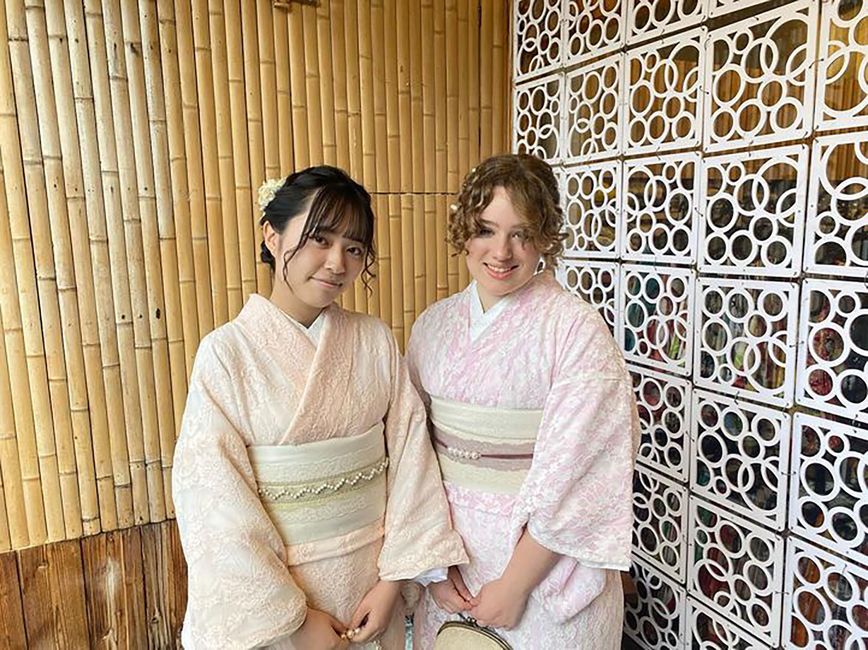Behind the Scenes of a 留学生 (Ryuugakuse: Exchange Student)
“Ladies and gentlemen, Japan Airlines is pleased to welcome you to Tokyo. The local time is 22:34. Thank you for flying with us today, and we hope you fly with us again!”
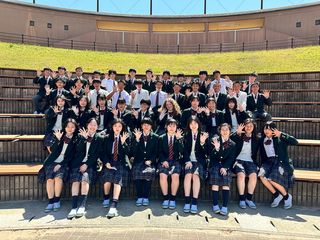
This was the first thing I heard when I arrived in Japan, my new home for the next ten months. Studying abroad had always been an itching thought that I pushed to the back of my mind, thinking it was unrealistic. One day, the daydream slipped out of my mouth, and the next thing I knew, I was submitting my application. From the day of my acceptance until the moment I stepped off that plane, I was filled with anticipation. Questions raced through my mind, “What will my host family be like? Will my classmates like me? Will my school uniform be cute? Will I see the Cherry Blossoms?” From that moment on, my life changed completely; so many new opportunities presented themselves to me, and I was able to learn and study a culture through immersion. By doing so, I develop a deeper understanding of Japanese traditions and the language. Studying abroad has an immense number of benefits on students and residents of the host countries and immeasurably impacts one's life, allowing one to experience new cultures in a way a tourist never could, grow as a person and develop new characteristics such as independence or deeper appreciation for international cultures, and explore new life paths such as future career or educational opportunities.
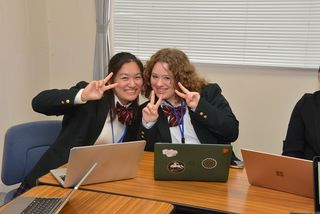
Living in a foreign country provides an entirely different experience than traveling to one.
By living in another country, one's outlook on the world as a whole expands and allows one to broaden one's thoughts regarding international cultures, politics, and mannerisms. David E. Smith and Darryl J. Mitry conducted a study regarding the impact of short-term study abroad programs. This study aimed to determine the effect of exchange programs on cross-cultural skills and international perspectives. The results state, “The study abroad experience resulted in higher levels of international political concern, cross-cultural interest and understanding when compared to the students who did not participate in a similar program”(Smith and Mitry). By conducting this study, where they questioned 450 students participating in a study abroad program, they concluded that studying abroad can significantly impact global outlook and allow one to widen perspectives and knowledge of diverse cultures, languages, and economics.
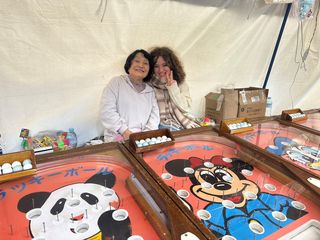
In order to understand how other global outlooks could change, I decided to find some primary sources; I interviewed Mariana Hallgrim, a Brazilian exchange student in the US, and asked about how her perspectives have changed. She explained, “My global vision has gotten better… In a global view, I know that all countries have problems, and everybody in Brazil is like, “Oh, the US is perfect; it’s a dream, the American dream.” Then you come and spend a year… you realize every country has problems.” Hallgrim has developed a deeper understanding of the world around her and has become more or less disillusioned with her preconceptions about other countries that she had believed before coming to the US. In addition to this study and the interview with Hallgrim, an article published by Insight Global Education gives their perspective on the study abroad experience: “Because of the long-term nature, you begin to settle in much deeper than an average tourist. You fall into a routine like you do at home: ... It is these mundane elements that can actually evoke cultural immersion.” The author's statement clearly explains how participation in daily activities with locals of the host country, such as homestays, classmates, or coworkers, leads you to develop new habits and adjust your lifestyle to that of your host country.
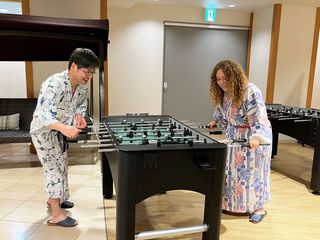
In addition to the many experiences that I encountered by living there rather than traveling, I also learned to incorporate new mannerisms and phrases that I wouldn't usually use in the English translation into my daily life. In Japan, it is customary to exchange “挨拶 (aisatsu)” or greetings to your teachers at the beginning and end of class; the teacher will give a series of instructions such as “Stand. Attention. Bow.” and at the beginning of class the students would say please while bowing and at the end to say thank you very much. On my first day of school, I was confused and had no clue what was happening.
I stumbled around trying to mimic my classmates, but it became a natural part of my daily routine by the end of my stay in Japan. International student, Kiyana Pitre, wrote on the CIEE blog about her experience with her host family, saying, "You know that you’re with the right host family when you’re home away from home is with them.” She explains that her host family made her comfortable in Japan and had a positive impact on her experience abroad. Similar to Pitre, my host family had a large impact on my Japanese language learning and on my mannerisms. I developed other habits such as shouting “いってきます(ittekimasu) meaning I’m off, and ただいま (tadaima) meaning I'm home,” every time I left or returned home in addition to words at meal times such as “いただきます(itadakimasu) or ごちそさまでした(gochisosamadeshita). These mannerisms wouldn't have developed without having lived in Japan among natives, especially with my homestay. Much like how I learned to adjust to the mannerisms of my Japanese surroundings, Hallgrim shared that she too has had to learn to adjust to her new home. Hallgrim described American conversation, saying, “What you're saying is exactly what you're saying. There's not a second meaning.” Hallgrim believes that Americans are extremely direct, and she told me of misunderstandings she encountered when she spoke less directly like she would back in her home country, Brazil. While it takes time to adjust to new mannerisms and language, it's always something those in your host country will be ready to help you with.
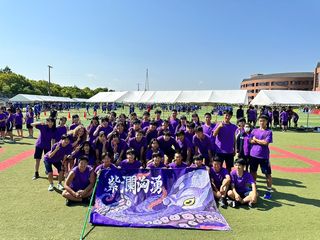
It was important that I experienced as many cultural experiences as possible while living abroad so when searching for a program to apply to, I came across CIEE High School Abroad and they advertised their program by explaining, “On program, you'll experience life at a public or private high school, taking classes taught in Japanese. Fully immersed in teen life, lingo, and both traditional and pop culture, you’ll make huge strides in language proficiency before you know it.” After reading this description of what I would be able to experience in Japan I knew that CIEE was the organization I wanted to travel with. Much like CIEE explained to me, I was able to immerse myself completely in the culture and participate in cultural activities that would have otherwise been impossible had I not been living and attending school there. Japanese high schools host events such as 体育祭 (taiikusai), sports festival, and 文化祭 (bunkasai), culture festival; while attending Ritsumeikan Uji High School, I was able to participate in these events. During my school's sports festival, I competed in an event called せわたり(sewatari), where one classmate runs along their classmate's backs as they form a continuous chain for the runner as well as participating in a large, organized dance-off.

Various events occur throughout the festival, and scores are added at the end. My team, the purple team, won the last two main events and charged the field to celebrate. The amount of enthusiasm and excitement of the day was only something I could have experienced by participating. Roth also agreed that the sports festival was one of his favorite events; when I asked him to tell me about a moment that stood out to him from his experience, he told me, “Taiikusai! I met so many people and participating in sports was so much fun...The energy way amazing.. Afterwards me and my boys went to yakiniku.”
Roth was also able to participate in cultural events, and these stood out to him as he was able to really be a part of his school community and even spend time with his classmates afterward. My school's culture festival was also a large undertaking that was completely worth every bit of effort. Each class chooses a theme and activity for their class to build, and on the day of the festival, parents, friends, and students from other schools can come and enjoy the students' efforts. My class chose to create a room full of games traditionally found at 祭 (matsuri) festivals. We created a number of booths hosting games such as わなげ(wanage), スマートボール (smart ball), 射的屋 (shatekiya), ストラックアウト (strikeout), and 千本釣り(senhontsuri). I was heavily involved in the preparations and helped my classmates by going to the hardware store to purchase supplies, measuring and cutting wood, nailing pegs into boards, painting games, and building booth stands. During the festival itself, I was incredibly busy; I helped run game booths for my class, and in addition to my class activities, I also ran a small second-hand clothing store with classmates from my sustainable development goals (SDG) class and gave presentations on my hometown for the school's international center. The project for my SDGs class made it into the national newspaper, and we were able to reach a large audience in regard to promoting sustainable fashion, increasing our impact. I wouldn't have been able to participate in any of these events or learn about these important parts of Japanese culture or global issues in regard to SDGs had I not attended Ritsumeikan.
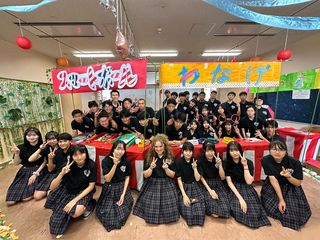
International students can experience exponential growth and self-awareness when studying abroad while also allowing those in host countries to widen perspectives on international cultures. Several international students and students who have had foreigners attend their schools were interviewed. While no one agreed their program or experience was entirely perfect, they all agreed that they are grateful for it and appreciate that they had the opportunity to participate in such programs. One interviewee, Zachary Roth, the student who, by my side, entered Japan and has yet to leave, was asked about how his time abroad has allowed him to experience the culture and learn more about himself and others. Roth was quick to explain how life abroad has had a tremendous impact on his outlook on life, “I've grown a lot as a person… When I got here, I was a little socially underdeveloped … how I was before was like a hollow person with almost no opinions but now I have better opinions and more solidified values.” Roth elaborates on how studying abroad has allowed him to focus not only on learning about the culture and language but also on improving himself and developing a stronger mindset than he had before entering Japan. Similarly, a study focused on the cognitive benefits of cultural experience and the relationship between studying abroad and creative thinking parallels Roth's statement and explains that, “Students who studied abroad recruited and combined intellectual resources from various cultural frameworks to generate ideas and solutions on the CCT that were richer in description, detail, and humor compared with students who had not studied abroad.” This shows how the expansion of one's mindset can be expanded by exposure to diverse cultural elements that can be experienced by studying abroad.
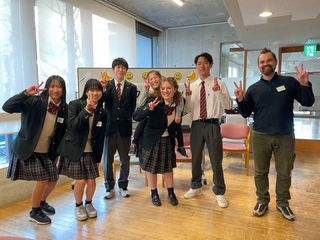
While I was focusing on exchange students and the direct impact their time abroad had on their lives, I realized that myself and others who have studied abroad also affect those in our host countries.
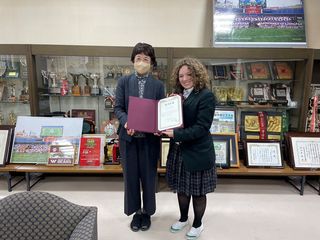
After coming to this realization, I decided to interview Ryotaro Nakagawa, a Japanese high school student who has found himself consistently surrounded by foreign friends, including myself. I questioned Nakagawa about how becoming friends with international students had benefited him. Nakagawa elaborates on his gratitude for his foreign friends when he stated, “I have two things that I'm convinced of. The former is that they helped me learn languages, at least temporarily. I really appreciate that my friends helped me learn English and other languages. The latter is that language speaking skills get worse unless I keep speaking even when I'm not with great teachers.” Being surrounded by what you want to learn will create countless opportunities for improvement compared to solely using materials such as textbooks or online resources to learn. In another interview with Cristiana Fornara, an Italian student currently studying in the US, she explained how those around you are always ready to help you learn. Fornara states, “If you're brave enough to ask for help people will help you.” I can personally relate to Fornara's statement; I found that while I was in Japan, any time I would struggle, people would slow down, adjust their sentences, teach me grammar and vocabulary, and do their best to teach me anything they could about their language and culture while also remaining incredibly patient with me.
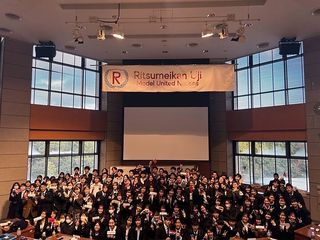
Relationships between exchange students and natives of the host country significantly impact both parties. When asked about how his foreign friends had changed his global perspective, Nakagawa declares, “I'm sure that I've learned a lot from them in terms of not only acquired language skills, but also other cultures and hospitalities. As for me being friends with those from other countries have greatly broadened my perspective. This might sound a little too trivial, but I came to watch international news more carefully, especially when they're covering events in countries where my friends live.” Nakagawa describes multiple ways his foreign friends have impacted him, including understanding other languages and cultures and aiding his curiosity and eagerness to learn about different countries. In agreement with Nakagawa's statement, a study conducted by Mary Rickard, Doreen Sams, and Jeniffer Sams on High-impact practice (HIPS) benefits from studying abroad found that, “The essence of studying abroad, HIPs, consists of living and learning in a new environment where different attitudes, beliefs and judgments may exist. A high-impact study abroad experience that incorporates TLEs facilitates meaningful learning for students through experiential learning and group discussions and provides opportunities to critically reflect on, apply and synthesize diverse ideas.” This demonstrates how studying abroad can create an environment that cultivates diverse ideas and facilitates incorporating cosmopolitan perspectives. I have found this true for exchange students and those affected in the host country.
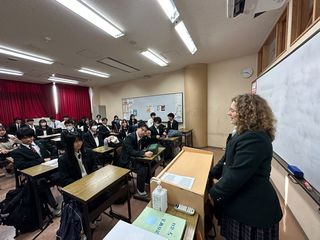
Overall I found that in addition to my own life, the lives of other exchange students I interviewed, the students who participated in studies, and those in the host countries of international students are all greatly affected by programs such as mine. My experience opened my eyes to the intricacies of other cultures and allowed me to explore new interests as well as provided me with a great environment that promoted personal growth. The friendships and bonds I made in Japan will forever remain close to my heart because of the immense amount of positivity they brought into my life. Participating in an exchange program is something that I would recommend to anyone who is looking to increase their knowledge about international matters, incorporate diverse thinking into their life, or immerse themselves into a culture. Studying abroad isn't for the faint of heart. It takes time to adjust and can be difficult at times, but there will always be plenty of people to help encourage you and applaud your dedication to challenge yourself every day.
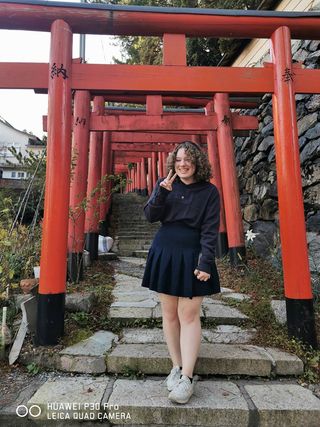
Additionally Connor Nyhan, a student with whom I had the pleasure of attending Ritsumeikan with, agreed that he too, grew as a person and became more outgoing. Nyan states, “I was very introverted when I got there, and I was very extroverted by the time I left.” Another thing that both Roth and Nyhan agree on is that they both found that they love living in Japan so much that they want to or already have continued their educational careers in Japan by attending university or language schools after their initial programs had reached their end dates due to the passion they found for the country and culture. Their exchange program was successful in allowing them to find new opportunities for their international education. In addition to these students many others who have studied abroad choose to return to their host countries to continue their education, find a career, or to continue exploring a country that provided them with a positive life impacting experience.

